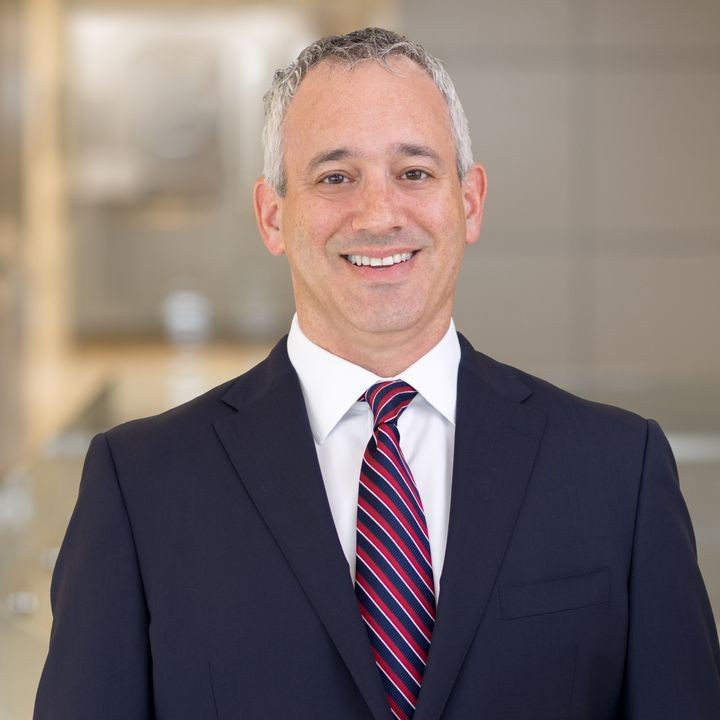CMS Releases Rule Requiring COVID-19 Vaccinations for Health Care Workers
Client Alert | 4 min read | 11.05.21
On November 4, 2021, the Centers for Medicare & Medicaid Services (CMS) published an interim final rule requiring health care workers at facilities enrolled with Medicare and Medicaid to be fully vaccinated as a condition of participation. Under the rule, if providers want to continue participating in Medicare, all applicable staff must have at least started the vaccination process by December 5, 2021. By January 4, 2022, all applicable facility staff must have all required vaccine doses, not including the 14-day incubation period after the final dose.
The Occupational Safety and Health Administration published the second emergency temporary standard (ETS) today, requiring employers of 100 or more employees to mandate full COVID-19 vaccination or weekly testing, along with other requirements. Click here for more information on the latest OSHA developments. Importantly, CMS has made it clear that this rule preempts any inconsistent state or local laws, including those banning or limiting an employer’s authority to require COVID-19 vaccination or other precautions. The second OSHA ETS will not apply to health care facilities that are also employers of 100 or more employees subject to the COVID Health Care ETS requirements (29 CFR § 1910.502).
Background
The CMS rule applies to an estimated 17 million workers, both clinical and non-clinical, at health care facilities that are enrolled in and receive federal funding from Medicare or Medicaid. This includes the following facility staff:
- Facility employees
- Licensed practitioners
- Students, trainees, and volunteers
- Individuals who provide care, treatment, or other services for the facility and/or its patients by contract or other arrangement
CMS has been very clear that the vaccination requirement applies to all facility staff, including those who do not work in a formal clinical setting. This broad application is meant to encompass those who provide treatment or services outside of a formal facility – such as home health and hospice – and those who perform primarily telework but will occasionally enter a health care facility. But those who work 100% remotely or 100% off-site are not subject to the vaccination requirement of this rule. Nor are those who provide infrequent ad hoc non-health care services – such as delivery services and repair personnel. Health care facilities may choose to require vaccination for those individuals at their discretion.
Health care workers are required to be “fully vaccinated,” meaning it has been two weeks or more since completion of a “primary vaccination series.” A primary vaccination series means the administration of the single-dose Johnson & Johnson vaccine or both doses of the Pfizer-BioNTech or Moderna vaccines.
The CMS rule does not provide an option for healthcare workers to be tested on a weekly basis in lieu of being fully vaccinated.
The White House estimates that the rule will apply to approximately 76,000 health care facilities that are Medicare- and-Medicaid certified providers and suppliers from the below list of categories. It does not apply to other health care entities which are not regulated by CMS, such as physician offices; however, those entities may still be subject to the OSHA rule.
- Hospitals
- Ambulatory surgical centers
- Hospices
- Long-term care facilities (including skilled nursing facilities and nursing homes)
- Psychiatric residential treatment facilities
- Programs of all-inclusive care for the elderly
- Intermediate care facilities for individuals with intellectual disabilities
- Home health agencies
- Comprehensive outpatient rehabilitation facilities
- Critical access hospitals
- Clinics, rehabilitation agencies, and public health agencies as providers of outpatient physical therapy and speech-language pathology services
- Community mental health centers
- Home infusion therapy suppliers
- Rural health clinics and federal qualified health centers
- End-stage renal disease facilities
Timeline
The rule will be published in the Federal Register on November 5, 2021.
“Phase 1” of the CMS rule is effective 30 days after the publication of the IFR, or December 5, 2021. Phrase 1 requires that health care workers receive the first dose of a two-dose vaccine or the only dose of the Johnson & Johnson vaccine. If workers are seeking lawful exemptions, they must be requested and/or granted by this date. Phase 1 also requires health care facilities to develop and implement appropriate policies and procedures regarding the vaccination requirement.
“Phase 2” is effective January 4, 2022, at which point all health care workers must have received all required doses, except those who were granted a lawful exemption or were permitted a delay in vaccination due to clinical precautions and considerations. It does not, however, require that workers have completed the full two-week waiting period for full vaccination by January 4th. But ongoing compliance will require all workers to have reached full vaccination status as soon as possible after January 4th.
Contacts
Insights
Client Alert | 7 min read | 01.30.26
CMS Proposes CY 2027 Growth Rate and Changes to Risk Adjustment for Medicare Parts C and D
On January 26, 2026, the Centers for Medicare and Medicaid Services (CMS) circulated the Calendar Year (CY) 2027 Advance Notice to communicate proposed changes to Medicare Advantage (MA) capitation rates and Parts C and D payment policies. The changes are expected to be finalized in April 2026 but may be delayed. The following is a summary of the most significant proposals, with further details below:
Client Alert | 4 min read | 01.30.26
Optimum’s Shot Across the Bow: An Antitrust Challenge to Cooperation Agreements
Client Alert | 9 min read | 01.30.26
Client Alert | 7 min read | 01.29.26
ASEAN Digital Ministers' Meeting 2026: Spotlight on AI Cooperation in Asia's Rising Markets




